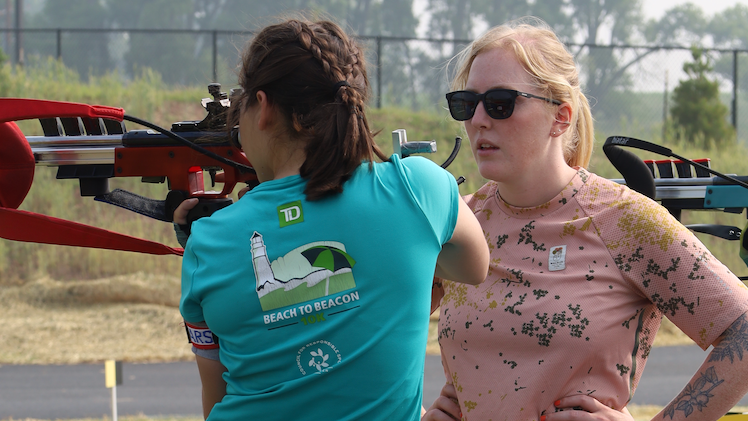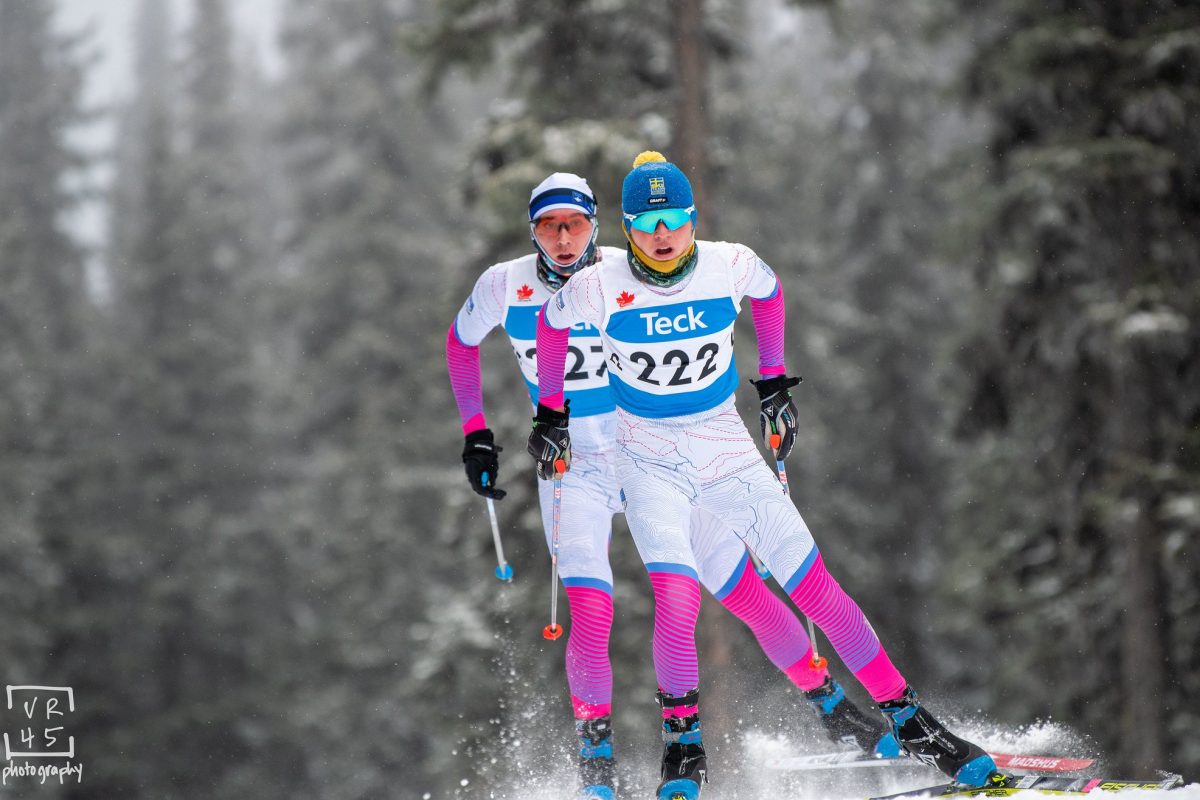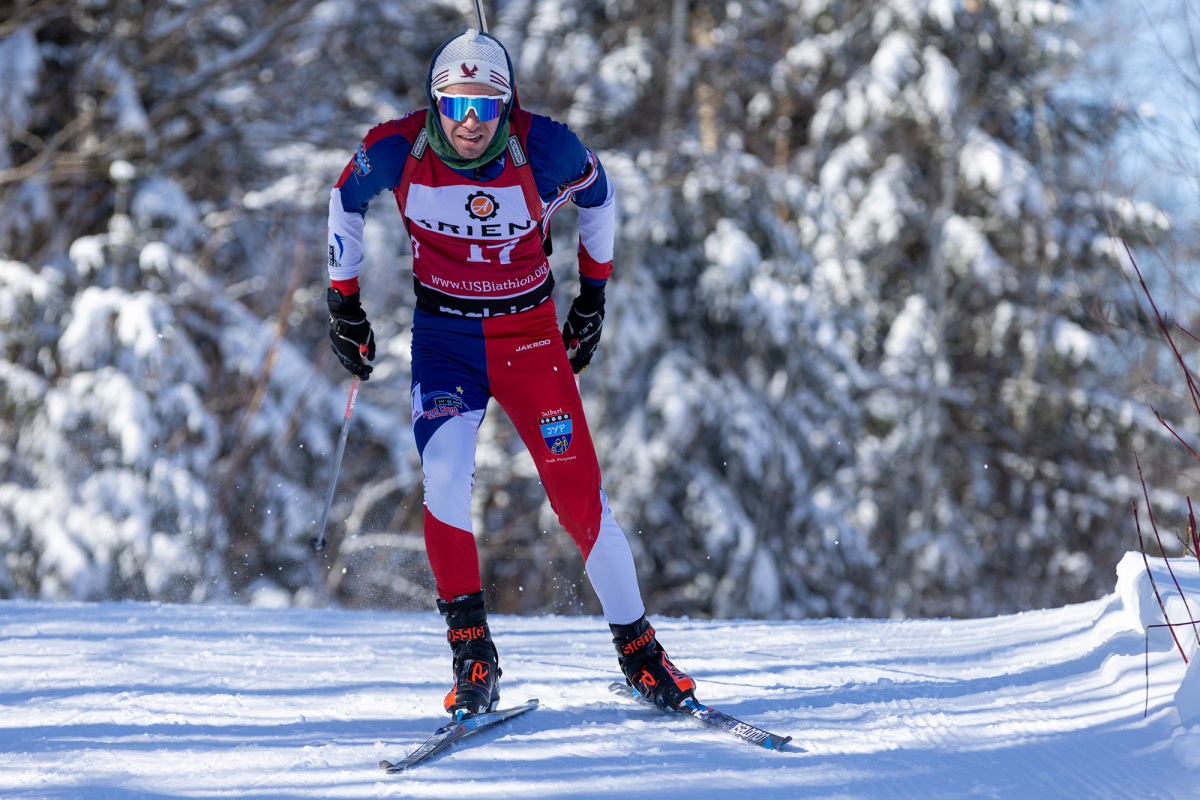
BEND, Ore. – Jean-Philippe Le Guellec was riding high in 2010 when he finished sixth in the sprint, 11th in the pursuit, and 13th in the individual at the Vancouver Olympics. The Canadian biathlete – then 24 – was motivated and aiming for his first Word Cup podium.
The 2011 season didn’t go quite as expected; he picked up just four top-20 results and late in the year received a diagnosis of mononucleosis, which explained his performance lull. After taking a lot of rest in the spring, Le Guellec was back at it this winter, but wasn’t quite sure what to expect.
His results were variable – for example, at the opening weekend in Oestersund, Sweden, he placed 86th in the sprint and 14th in the individual. By the time the end of the season rolled around, Le Guellec had improved his consistency, finishing 26th, 20th, and 12th in the pre-World Champs weekend in Oslo, Norway, and then placing 14th in the sprint at the Championships themselves.
One weekend later in Russia, he placed eighth in a sprint and said he was feeling good at last.
“I felt pretty strong throughout the race, which is really important,” Le Guellec said at the time. “In the majority of races this winter I find I was struggling to keep up pace in the end.”
So is Le Guellec really back? FasterSkier sat down with him on Wednesday morning in the lodge at Mount Bachelor, where the Canadian team is doing a training camp along with the other North American national teams. The answer seemed to be yes – even though he’d missed doing an interval session with the Americans due to a slight head cold.
FasterSkier: How do you like the skiing here?
Jean-Philippe Le Guellec: It’s nice. We’ve skied in Dachstein, on the glacier in Austria, and when the weather there is bad it’s really bad, but here it’s more mild. At least it’s snowing, it’s not raining, and we got a good freeze last night so today’s ski was actually really good. When we were here earlier it was a lot like Ruhpolding, super deep and slushy, and slow.
FS: So good practice for you guys.
JPLG: Exactly. Who knows what the races will be like next year.
FS: You didn’t talk much about being sick during the season, but how did it affect things?
JPLG: Not a lot of people know. It’s not like we made a lot of noise about it. So for sure, when you’re getting slandered in the news and stuff, you’re thinking, “Well…” But yeah. Last year was definitely pretty rough. And what made it rough was that I didn’t know until just before World Championships. So at that point it was like, cruise for the rest of the season and then go back home and rest.
FS: And was it mono that you had?
JPLG: It was mono and another virus at the same time.
FS: I think Tim Burke had a similar challenge when he had compartment syndrome, and he decided not to talk about it and then wasn’t able to explain why he wasn’t racing as well.
JPLG: Yeah, it’s a lot different than in Europe, where you know every little thing about Michael Greis’s ankle and this Russian’s back. Here we’re pretty much doing our own thing.
FS: Is the illness going to have any long-term effects, or are you back on track?
JPLG: The doctor said mono itself apparently affects physical performances up to 18 months after the virus is out. So that’s a year and a half. But I don’t know to what extent I got the disease. I was able to train, and I was able to race all season. So let’s not blow things out of proportion, either. This season was way better than I expected, even though I was still definitely going uphill.
FS: Has it affected your plans for the upcoming season at all?
JPLG: Not so much. I was able to end the season in pretty good shape. And the season itself had ups and downs, but it was constantly going up. So, no, I’m approaching training this season like I usually would, which is refreshing. I still have a little reserve – like sometimes you wake up in the morning and your heart rate is a little higher, and you wonder. You know what the feeling is when you’re totally dead. But it’s nice to be up and running, unlike last year when I had to wait until basically July.
FS: In terms of it being two years before Sochi, are you doing anything specifically for that?
JPLG: Well, here we’ve worked on ski technique and that’s a really good thing actually. We essentially re-learned how to ski.
FS: That’s nice!
JPLG: Yeah! [laughs] You’re never done learning. We’ve done a bit of modification too with the rifle and shooting positions. And this is going to be locked until Sochi. So in terms of the mono and training, it’s always a bad time and you never want it, but it’s good timing because I had Vancouver, and I’ll probably be fine for Sochi.
FS: What about Brendan Green [who had back surgery three weeks ago]? Is it a bummer not to have him to train with right now?
JPLG: Yeah. I think it’s more of a bummer for Brendan not to be able to train. I saw him in Canmore, and he’s doing kind of well – kind of well considering his situation. He’s coming back. For him, it’s totally different because he’s going to be out for a period of the summer. This is physiological; it’s not just that his system has shut down, it’s that he had surgery and hopefully he’ll be able to get back to 100 percent sometime this season. But to not have him around definitely changes things.
FS: So will it just be you, Nathan Smith and Scott training together a lot this year?
JPLG: Yeah. In the best of worlds, Brendan will be able to come back on the World Cup tour, but realistically, I guess we’ll find out. It will really depend on his recuperation.
FS: Is it good to be here and ski with the U.S. guys and have some new training partners?
JPLG: Yeah. We’re kind of all doing our own little things, you know. And it sucks that I was sick yesterday because I would have loved to do the classic sprints with the cross country guys.
And we actually do some training with the cross country guys from Quebec when we’re in Quebec. So I’ll be seeing some of the national team cross country guys in early June in Montreal.
So even if we’re not doing everything together, it’s cool to see everyone skiing around and observing. It’s still good.
FS: You must be pretty jealous that the cross-country guys are going to race in Quebec City.
JPLG: Yeah, for sure. And I would have loved to be there to see the races too. It kind of sucks that I am going to be out on tour, in a way. It would be so awesome for biathlon to have a World Cup in Quebec, but that won’t be for a little while, if ever.
FS: Do you think there will be one in Canada again?
JPLG: In Canada, why not. We have the places for it. It’s just a lot of transitions going back and forth from Europe to especially out West. And there are places in the East like Presque Isle and Fort Kent.
FS: Do you feel like the success of the cross-country teams has helped you guys out at all, in terms of raising the profile of nordic sports?
JPLG: No. Not at all. But it definitely helps the motivation. To see Alex and Devon take the relay away from the Norwegians in Oslo – I mean, I still remember the moment, and I was totally ecstatic. And then Lenny, who has also been podiuming at the end of the season, just seeing that really is a boost. We’re not any more popular though. Not biathlon.
FS: Is there anything you think that could help you get more numbers in biathlon?
JPLG: Um… we should do what cross country is doing actually. Get on the podium. Get some hype.
FS: Get on it!
JPLG: Well, we’re working on it. We’re getting closer.



